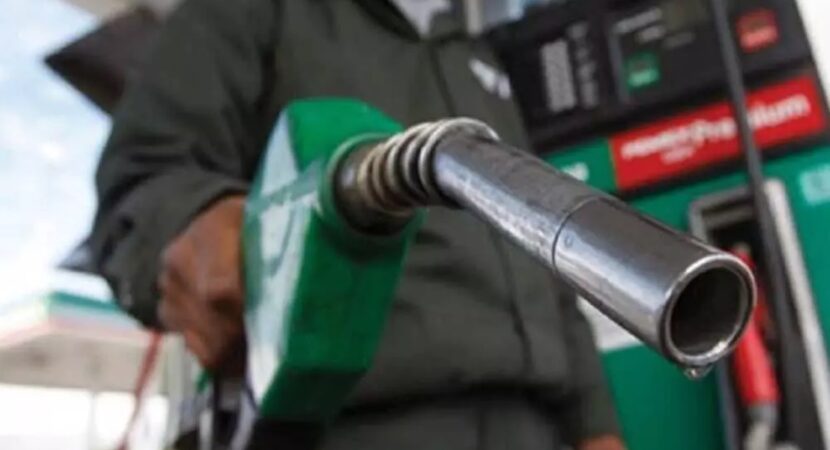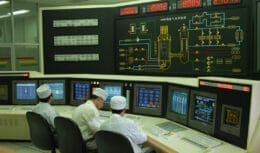
Petrobras is 'attacked' by the rise in fuel prices, by deputies - who refuse to change ICMS in the midst of the crisis caused by consecutive increases in the prices of gasoline, ethanol and diesel
Brazilians have been suffering on a daily basis with the increase in fuel prices, given that the price of ethanol, gasoline and diesel keeps rising at the pumps. As a measure to try to curb the surges, the Government proposed changes in the taxation of ICMS on fuel. The new proposal was not seen with good eyes by some deputies, who went so far as to accuse the Brazilian oil company Petrobras of being responsible for all of this.
Read also
- Gasoline price exceeds R$ 6 and ethanol reaches almost R$ 5 at gas stations and hits consumers' pockets
- Loyalty to the brand at gas stations will end and the sale of fuel via delivery will be released; measure can reduce the price of gasoline by up to 50 cents per liter!
- Oil goes up last Friday (14/05) and Petrobras should increase, even more, the price of gasoline; Ethanol takes advantage and price should drop at mills
- Mixing biodiesel with diesel oil can damage engines and increase fuel prices, say entities representing more than 200 companies in the sector
- Gasoline prices could skyrocket and ethanol could run out of stock due to the shortage of anhydrous alcohol; shortage goes impaffect the pockets of Brazilians even more
Luiz Cláudio Fernandes Gomes, Deputy Secretary of Finance of Minas Gerais, declared that the National Committee of Secretaries of Finance, Finance, Revenue or Taxation of the States and the Federal District (Consefaz) is against changes in the taxation of ICMS on fuels.
The pronouncement took place yesterday (19/05), after a meeting with representatives of the states, the fuel sector and the National Petroleum Agency (ANP), in which the agenda focuses on the discussion of the Complementary Law Project (PLP) 16/ 21, of the Executive Branch, which modifies the payment and unifies the rates of the state tax.
Reduction in ICMS taxation on fuels aims to avoid fluctuations in gasoline, diesel and ethanol prices for consumers
The proposed reduction in ICMS taxation on fuel aims to simplify the system and avoid fluctuations in consumer prices.
Despite the deputies recognizing the impact of the tax on the amount paid at gas stations, they claim that the ICMS is not primarily responsible for the spikes that have been happening in the price of gasoline, diesel and ethanol, and blamed the policy of the Brazilian oil company, Petrobras , as the main responsible, given that the readjustment made by the state-owned company is linked to international market prices.
Deputy Sidney Leite (PSD-AM) complained that the costs of the Brazilian state-owned Petrobras are not transparent and auditable. “That Petrobras be very clear about what this cost affects. There are Petrobras employees who do not work on platforms, who are not at risk, but receive bonuses as if they were at the top of the process, ”he criticized.
Deputy Merlong Solano (PT-PI) declared that the price of fuel will not be solved only with tax changes. “It is necessary to put on the agenda the option for the price of the international parity. Brazil has abundant reserves, sufficient technological experience, an underutilized industrial park,” he noted.
Deputy Christino Aureo (PP-RJ) defends that changes in the collection and rate of ICMS on fuels be carried out together with the tax reform, to ensure constitutional principles. “We have an exaggerated tax burden, poorly distributed and poorly informed society about how it is composed and distributed. PLP 16/21 has positive points, but without establishing an adequate environment for discussions with the states, it does not evolve”, he warned.
ICMS on fuel is the main source of revenue for the states — equivalent to almost 20% of the total, and deputies fear loss of revenue
The deputies fear the loss of revenue, since the ICMS on fuel is the main source of revenue for the states, representing almost 20% of the total.
The example of this is that, in 2020 alone, in the middle of the pandemic — in which the country went through long periods of quarantine, the fuel market was responsible for a collection of BRL 130 billion last year, BRL 81 billion of which in ICMS.
Institute for Strategic Studies of Petroleum, Natural Gas and Biofuels blames Petrobras as largely responsible for the constant increases
For Carla Borges Ferreira, researcher at the Institute for Strategic Studies on Petroleum, Natural Gas and Biofuels (ineep), the ICMS is not the great villain for the rise in fuel prices.
Carla says that the variation in the cost of diesel between May 2020 and February 2021 was the factor that most contributed was the increase in the price of refineries, which, according to her, had an impact of R$ 0,60 on the liter sold at the gas station of supply.
The researcher points out that the recent exemption from federal taxes given by the Government on fuel did not reach the pockets of Brazilians. According to her, prices remained stable because the reduction in federal taxes was incorporated by other agents in the sector, who took advantage of the opportunity to readjust the production price, the resale margin and the ICMS.
Carla also blamed Petrobras' import parity price, which suffer readjustments due to the high dollar and logistics costs, causing greater volatility and constant increases in fuel prices at the state's refineries.
“The only significant drop in diesel prices was due to the drop in international prices for a barrel of oil, during the coronavirus pandemic,” he noted. She warned that the PLP 16/21 may not achieve the objective of reducing the price at the pump. "Changes in taxation have worked as palliative measures, but they do not resolve the issue of high prices and their volatility", she explained.













Air Force F-16 fighters…
True friend, what they shot down were…
Air Force F-16 fighters…
Well... It's flying scrap... Typical...
Air Force F-16 fighters…
I would like to know what planet you live on…
They discover the third largest deposit…
That’s why all foreigners and NGOs…
Air Force F-16 fighters…
Which genocide are you talking about? Than…
The search for alternatives to obtain…
These nobio batteries like 6 minutes…
Negative, all combustion engines can…
The war in Ukraine is here to…
The article didn't exactly explain the principle......
Do you speak any of the current languages of…
Several points to be analyzed: Matters…
I have one, the one on the road and one…